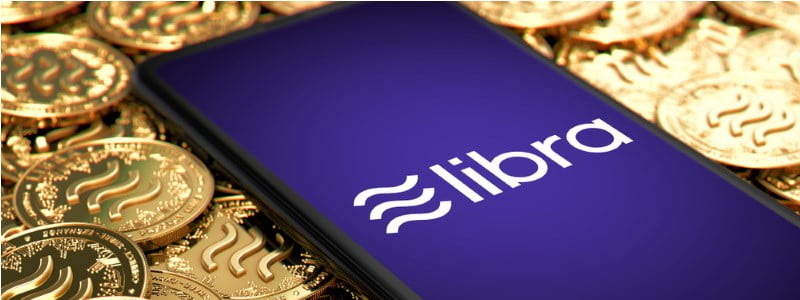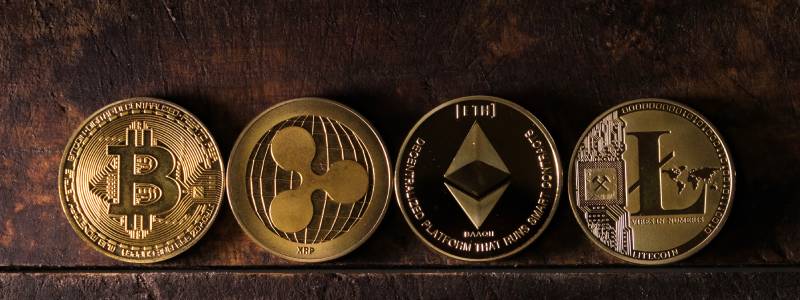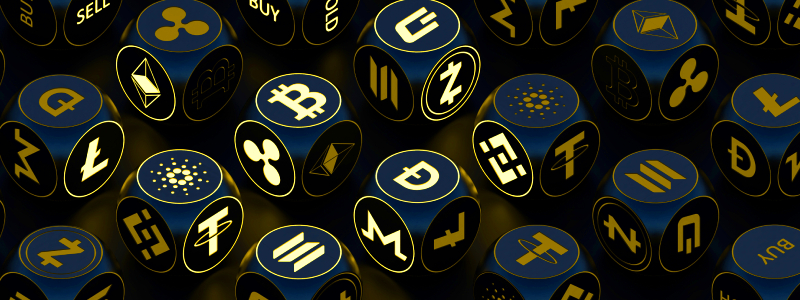Facebook has finally announced the launch of the Facebook cryptocurrency — GlobalCoin, or Libra. How will it affect crypto ecosystem?
The international social media juggernaut, Facebook, has finally revealed the specifics behind the mysterious blockchain project the platform has been working on over the last year. Announced was the impending launch of Libra, Facebook’s very own crypto currency.
The project, previously referred to as GlobalCoin, is now officially named “Libra” — but is Libra really a cryptocurrency? What kind of impact will the launch of Libra have on the cryptocurrency ecosystem? How does Libra even work?
Will the launch of the Libra platform allow unbanked and underbanked individuals around the world access much-needed financial services? Or is Libra simply a collaborative effort between incumbent financial and internet giants aimed at co-opting the blockchain revolution?
In this article, we’ll take a look at the Libra project and assess the information currently available in order to find out whether Libra will really help the blockchain and cryptocurrency ecosystem grow or hinder it.
What is Libra?
Libra, according to the official Libra website, is designed to function as a “simple global currency and financial infrastructure” that will empower billions. Libra is operated in part by a subsidy of Facebook, and at first glance appears to operate in a very similar manner to any other major blockchain venture backed by incumbent traditional finance ecosystems, such as Ripple.
The stated goal of Libra is providing financial services to the unbanked and underbanked — the Libra website references the 1.7 billion unbanked and underbanked individuals around the world. The core message of Libra is tightly focused on cheap international remittances, promising cross-border transactions cheaper than the cost of the average text message for anybody connected to the internet.
Libra, it seems, isn’t offering anything that Bitcoin, Ethereum, or virtually any other cryptocurrency is capable of doing. What it does have, however, is instant platform integration with the world’s number one social media platform, and the backing of some of the biggest and most influential payments and telecommunications organizations on the planet.
Libra Governance: Who Owns Libra?
Libra is officially run by a not-for-profit association, which assists with the governance of the Libra blockchain. Libra is actually based on blockchain technology, and is run though Byzantine fault tolerance consensus. Members that pay a large fee to get involved in the operation of the Libra network are the “in club” of validators — and it’s a very expensive, very exclusive club.
Libra’s governance stack consists of a broad spectrum of multilateral organizations and businesses. This network includes telecommunications giants such as the Vodafone group, payments processors that include Visa, Mastercard, PayU, and Stripe, and marketplace platforms such as Uber, Spotify, and eBay.
Libra is also backed by a significant amount of VC, with Union Square Ventures, Andreessen Horowitz, and Breakthrough Initiatives all funding the platform behind the scenes. Lastly, Coinbase, Xapo, and Anchorage are all contributing blockchain expertise, as the “new kids” on the technological block.
Is Libra revolutionary? Well, Libra definitely doesn’t represent a major challenge to incumbent financial platforms that could potentially usurp the internet, infrastructure, and finance oligarchs — it’s their own creation. Libra does, however, hold the potential to introduce the basics of cryptocurrency to the billions of users the organizations working together to create Libra possess.
Wait — is Libra a Stablecoin?
The announcement of the Libra project isn’t paired with the release of an unapproachable, highly complex white paper. Instead, Libra developers have opted for a less-complex approach to the white paper that is understandable to the less technically adept.
Official Libra documentation states that Libra is a highly stable currency that is “backed by a reserve” in order to prevent major price fluctuations. Determining exactly what Libra is backed by is a little more difficult and requires some additional reading, which reveals that Libra is a stablecoin backed by “a collection of low-volatility assets, including bank deposits and government securities in currencies from stable and reputable central banks.”
The assets that Libra is backed by is secured by “a geographically distributed network of custodians,” but Libra has not yet officially given any further details about how the custodial strategy will be executed, and how it could potentially be audited.
The Libra Whitepaper Explained
The Libra whitepaper is easy-to-read and presented in a streamlined fashion. Beginning with a simple breakdown of the core goals of the Project, Libra is aimed squarely at the international retail cross-border remittance market and, according to the claims made within the paper, is an entirely new blockchain network and is not a fork of any other blockchain.
The Libra blockchain is designed to handle billions of user accounts, extremely high transaction throughput, and deliver extremely high security. With platforms such as Mastercard, Visa, and Coinbase participating in the operation of the Libra network, it’s highly likely that Libra will be able to deliver on these promises.
The Byzantine fault tolerance consensus model upon which Libra operates refers to validators as the “Libra Association,” with a membership price tag of at least $10 million USD invested in “Libra investment tokens.”
Is Libra anonymous? Will Libra be anonymous? The Libra whitepaper defines Libra as “pseudonymous,” stating that users are able to hold one or more addresses that are not linked to their real-world identity. Considering the extreme AML/KYC obligations of the parties involved in managing the Libra blockchain, however, it’s safe to bet that true anonymity will not be possible with Libra.
What is the Difference Between Libra & Calibra?
Given that the Libra platform is “not-for-profit,” it’s important to understand how Facebook itself plans to capitalize on the launch of their very expensive blockchain payments platform. Calibra is only mentioned twice within the Libra white paper, but is critical to the operation of the platform.
Officially designed to “ensure separation between social and financial data,” Calibra is a member of the Libra association and is tasked with creating services that operate on top of the Libra network. Importantly, Calibra is a subsidiary of Facebook.
The close relationship between Libra, Calibra, and Facebook will give Calibra a significant advantage as a service layer developer out of the gate, allowing Facebook to build and deploy services such as loans, money transfers, and credit. By creating services that operate on top of Libra, Calibra allows Facebook to profit from the Libra network.
How Will Regulators React to a Facebook Cryptocurrency?
The Libra announcement has already captured the attention of regulators around the world, with many regulatory officials expressing concern regarding the launch of a massive parallel financial ecosystem.
French Finance Minister Bruno Le Maire called for the immediate composition of a report based on the Libra platform in response to the launch announcement, stating that the Facebook cryptocurrency could potentially become a sovereign currency and should be prevented from doing so.
European Parliament Member Markus Ferber expressed similar concerns, highlighting Libra as a potential “shadow bank” that could operate with regulatory impunity. While the regulatory response to the Libra announcement has raised a number of concerns, it’s arguable that the stringent regulatory-compliant attitudes of the organizations behind the Libra project will result in the creation of a completely compliant platform.
How Will Libra Impact The Crypto Ecosystem?
Libra is an innovative and interesting application of blockchain technology designed to assist with international payments remittance. The Libra token is strictly a “crypto currency” in that it uses blockchain technology and operates as a currency without a centralized bank — but it’s not a cryptocurrency.
Satoshi Nakamoto’s Bitcoin white paper defines Bitcoin as a “purely peer-to-peer version of electronic cash” that operates without the need for a centralized financial institution. Libra is none of these things — transactions are validated by a closed group of centralized peers, and nothing about the project is peer-to-peer.
Unbanked and underbanked individuals around the world are ready for a financial solution that provides them with the services they need. Libra is likely to give these individuals a taste of what cryptocurrency can deliver, without providing the full feature set. Libra is likely to have a net positive impact on the cryptocurrency market and blockchain ecosystem for this reason.
For more updates & insights into Libra & Facebook’s cryptocurrency play and how it could impact you reach out to our seasoned crypto tax accountants.
Was this article helpful?
Related Posts
- Cryptocurrency Mining Taxes
If you're currently mining crypto, it's important to learn how cryptocurrency mining is taxed. This…
- EOFY Crypto Tax Planning Checklist
Crypto taxes can be extremely difficult to complete correctly. In this guide, we’ll take a…
- Keeping Cryptocurrency Records & Reporting
The ATO is investigating the records of crypto traders to ensure they are correctly reporting…
- Crypto Trader vs Crypto Investor
Working out whether you are a crypto trader or investor at tax time can be…

















